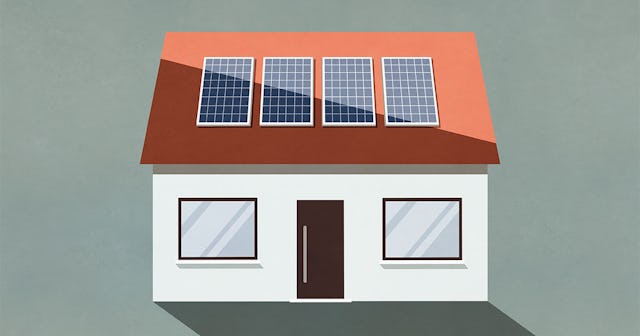What's The Difference Between Living In A Bubble And Protecting Your Space?

My husband says I live in a bubble; I don’t see anything wrong with it. I take that back — I did take umbrage at the term he used — as if I’m fragile and too delicate for society at large. But more on that later. I contend that I have a right to protect my space from bigots and assholes. (Newsflash: they make it in anyway because I’m a woman and a POC.)
My husband says they’re the same thing and spits back the same stupid nonsense I hear all the time about me contributing to the further polarization of society. That I’m part of the problem and have killed all dialog.
But have I?
What is the polarization of society?
There’s a lot of talk about “the polarization of society” and how it’s a bad thing. But what is it exactly? Welp, it’s basically a descriptor for how people have become more and more divided due to differences of opinion — exacerbated by social media algorithms — until the sides are so extreme and antithetical to the other that mutual coexistence seems impossible.
Though we blame a lot of it on former President Trump for normalizing such divisive rhetoric, the bones for the schism in our society have always been present. That’s what happens when a country is built on stolen land, the free labor of stolen people, and then throws a giant hissy fit about taxation without representation. (Please, tell me more about these “patriots” looting and rioting, destroying goods that did not belong to them into Boston harbor.)
It’s not a bubble; it’s protected space
Look. I get that people are allowed to have differences of opinion and that this world is full of people with vastly heterogenous world views. I understand that the more insular a community gets, the more it becomes an echo chamber and intolerant in its own way. Any ideology can become dogma — and thus, just another avenue of oppression.
A bubble implies that I cannot deal with the world at large — that I have retreated into some fake existence where no opposition abides, where we live in a “1984” landscape and all thoughts are controlled and words are regulated and abolished. That we are continually brainwashed and re-educated into good little Joo Dees à la “Avatar: the Last Airbender.” (Look, that show is deep.)
Except it’s not like that at all. It’s not a bubble or an island (or even a precarious peninsula).
What I have done — and many other marginalized persons have done — is severely restrict our spaces. I only let in folks who are either open to change and learning or who are proven at being supportive and demonstrate the way they treat and view people is similar to how I want to live my life.
And yet, instead of being lauded and idealized like an iconic, craggy old white man defending his property in some last stand against cruel invaders, POC are mocked, derided, and scolded.
I’m not talking about discussions in good faith, wrestling tough ideas and sitting with hurt feelings and confused brain cells. I don’t expect all my friends and peers to believe the exact same thing I do. That would be next to impossible since my beliefs are constantly evolving — progressing, if you will.
No. I’m contracting my social circles. The world at large already tells me that I don’t matter — that my friends don’t matter — that we don’t deserve to take up space or live or just fucking breathe. And thus, I’ve formed an embargo against people who actively argue about my right to exist — as if that were ever up for debate. Marginalized people’s inherent value and right to a happy and productive life is not up for debate.
I think most people can comprehend the distinction.
Yet still, they erect some straw man argument about having “open” dialog and “free-flowing ideas” as a stand-in to cling to abusive and bigoted ideas and bleat these poorly thought out screeds onto the internet.
But also, kindly fuck off
You know what pisses me off most about this whole societal polarization bullshit? The people who bemoan it act as if it’s a new thing.
It’s not.
The oppressed have never been quiet about their oppression, even when speaking out has come at great cost. It’s always the oppressors complaining about the audacity of people not knowing their place — daring to be considered human.
Being invited into my space is a privilege; trust has to be earned and verified. After all, if I don’t value myself enough to protect me, who will?
This article was originally published on